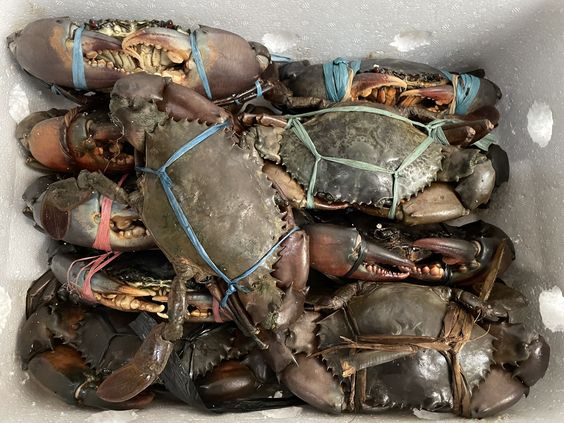12 Benefits of Investment in Fisheries: An Opportunity for Sustainable Growth
In today’s rapidly evolving economic landscape, investors are increasingly turning their attention towards sustainable industries that offer both financial returns and environmental benefits. One such industry that holds immense promise is fisheries. Below are some benefits of investment in fisheries.
12 Benefits of Investment in Fisheries
Investing in fisheries not only provides lucrative opportunities for financial growth but also contributes to sustainable development and the preservation of marine ecosystems. Let’s explore seven key benefits of investing in fisheries below!
Contents
- 1 2. Diversification
- 1.1 3. Job Creation and Economic Growth
- 1.2 4. Food Security
- 1.3 5. Environmental Conservation
- 1.4 6. Technological Innovation
- 1.5 7. Corporate Social Responsibility (CSR) and ESG Investing
- 1.6 8. Resilience to Climate Change
- 1.7 9. Cultural Preservation
- 1.8 10. Eco-Tourism Opportunity
- 1.9 11. Research and Innovation
- 1.10 12. Access to Global Markets
1. Stable Returns
Fisheries have historically provided stable returns on investment, often outperforming other sectors, particularly during economic downturns. With the growing global demand for seafood, driven by population growth and changing dietary preferences, investing in fisheries offers a reliable revenue stream.
Whether through commercial fishing operations, aquaculture ventures, or seafood processing facilities, investors can capitalize on the consistent demand for fish and seafood products.
2. Diversification
Including fisheries in an investment portfolio offers diversification benefits, reducing overall risk exposure. Fisheries operate independently of traditional financial markets, making them less susceptible to market volatility and economic uncertainties. By diversifying into fisheries, investors can hedge against fluctuations in other sectors, enhancing the stability and resilience of their portfolios.
3. Job Creation and Economic Growth
Investment in fisheries stimulates job creation and economic growth, particularly in coastal communities and developing countries where fishing is a primary livelihood. Supporting small-scale fisheries and aquaculture projects empowers local communities, fosters entrepreneurship, and reduces poverty.
Additionally, infrastructure development associated with fisheries, such as ports, cold storage facilities, and processing plants, generates employment opportunities and boosts economic activity in surrounding areas.
4. Food Security
As the global population continues to expand, ensuring food security becomes paramount. Fisheries play a critical role in meeting the protein needs of billions of people worldwide.
By investing in sustainable fishing practices and responsible aquaculture operations, investors contribute to the availability of nutritious seafood, thereby enhancing food security and combating malnutrition. Moreover, investing in fisheries helps address the challenges posed by overfishing and depletion of wild fish stocks by promoting sustainable resource management practices.
5. Environmental Conservation
Sustainable fisheries management is essential for the preservation of marine biodiversity and ecosystem health. Investing in fisheries that prioritize environmental sustainability and adhere to best practices helps conserve fish stocks and habitats for future generations.
By supporting initiatives such as marine protected areas, habitat restoration projects, and responsible fishing methods, investors play a crucial role in safeguarding ocean ecosystems and mitigating the impacts of climate change.
6. Technological Innovation
The fisheries sector is ripe for technological innovation, offering opportunities for investment in advanced fishing technologies, aquaculture systems, and seafood processing methods.
Innovations such as remote sensing technologies, underwater drones, and data analytics enable more efficient and sustainable resource management practices, improving yield optimization and reducing environmental impacts.
Investing in cutting-edge technologies not only enhances operational efficiency but also positions companies at the forefront of industry advancements, driving long-term competitiveness and profitability.
7. Corporate Social Responsibility (CSR) and ESG Investing
With increasing emphasis on corporate social responsibility and environmental, social, and governance (ESG) criteria, investors are prioritizing sustainable and ethical investment opportunities.
Fisheries companies that demonstrate commitment to responsible fishing practices, social welfare, and environmental stewardship attract capital from socially conscious investors seeking both financial returns and positive impact. By aligning investments with ESG principles, investors contribute to the advancement of sustainable development goals while generating attractive financial returns.
8. Resilience to Climate Change
Investment in fisheries can enhance resilience to climate change by supporting adaptation and mitigation measures. As ocean temperatures rise and marine ecosystems undergo shifts, investing in resilient fisheries practices, such as diversifying fishing grounds and promoting resilient species, can help mitigate the impacts of climate change on fish stocks and fishing communities.
Additionally, investments in sustainable aquaculture systems that minimize greenhouse gas emissions and reduce reliance on wild fish stocks contribute to climate resilience.
9. Cultural Preservation
Fisheries investment can aid in the preservation of cultural heritage and traditional fishing practices, particularly in indigenous and coastal communities. Supporting artisanal fisheries and indigenous fishing cooperatives not only sustains cultural traditions but also fosters community resilience and social cohesion. By investing in projects that respect local customs and empower indigenous peoples, investors can contribute to cultural preservation while generating positive social and economic outcomes.
10. Eco-Tourism Opportunity
Investing in sustainable fisheries management can create opportunities for eco-tourism and marine conservation tourism. Preserving healthy marine ecosystems and biodiversity attracts tourists interested in marine wildlife viewing, recreational fishing, and scuba diving, generating revenue for coastal communities and supporting conservation efforts.
By investing in eco-friendly tourism initiatives that promote responsible stewardship of marine resources, investors can harness the economic potential of marine conservation while protecting fragile coastal environments.
11. Research and Innovation
Investments in fisheries can drive research and innovation in marine science, technology, and sustainable resource management. Funding research initiatives focused on understanding marine ecosystems, fish behavior, and the impacts of human activities on marine environments can lead to innovative solutions for conservation and fisheries management.
By supporting research collaborations between academia, industry, and government agencies, investors can catalyze advancements in sustainable fishing practices, aquaculture technologies, and marine ecosystem monitoring, thereby promoting long-term environmental sustainability and industry growth.
12. Access to Global Markets
Investing in fisheries provides access to diverse international markets for seafood products. With globalization and improved transportation infrastructure, seafood can be traded globally, opening up opportunities for investors to tap into growing consumer demand in various regions.
Investing in value-added seafood processing facilities, cold chain logistics, and market development initiatives can enhance market access and competitiveness, allowing fisheries businesses to reach new customers and expand their export markets.
In conclusion, investing in fisheries offers a compelling opportunity for financial growth, while simultaneously addressing critical societal and environmental challenges. By diversifying portfolios, stimulating economic development, enhancing food security, conserving marine ecosystems, fostering technological innovation, and promoting corporate responsibility, fisheries investment presents a win-win proposition for investors and society alike.
As the demand for seafood continues to rise, a prudent investment in fisheries management and aquaculture ventures are essential for building a more resilient and prosperous future.






